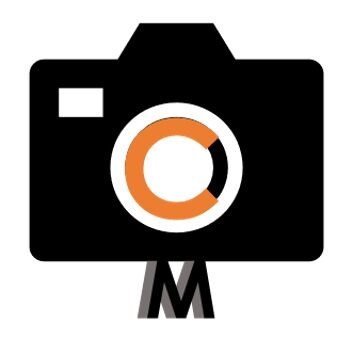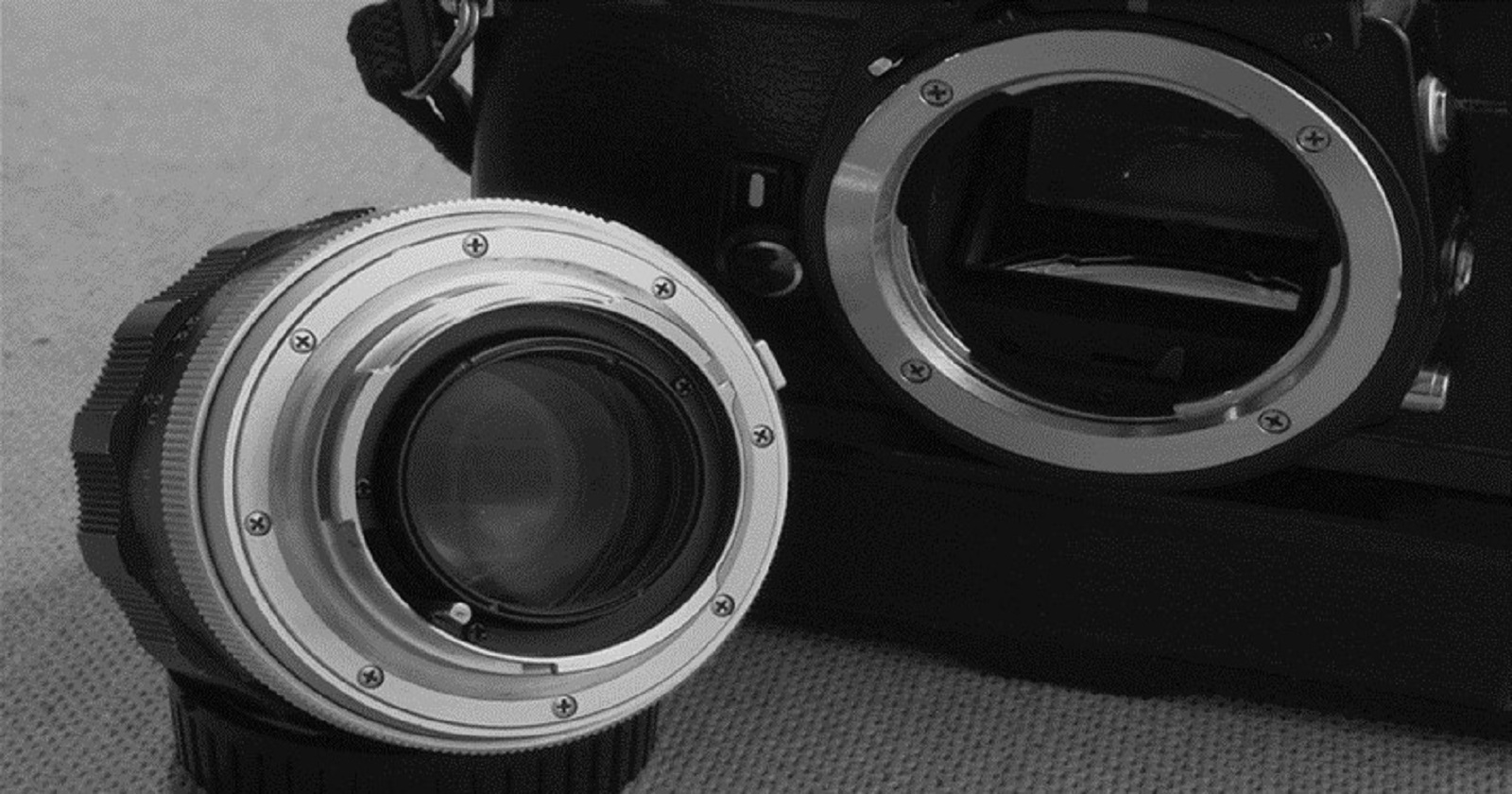Lens mount is a standard that is strictly implemented by camera manufacturers that is used to integrate interchangeable lenses to the mirrorless cameras body- precisely and securely.
I will walk you through the different camera lens mount types of the six major mirrorless camera brands namely Panasonic, Olympus, Canon, Nikon, Sony and Fujifilm. I will only focus on the said manufacturers as these are the main suppliers and top players for mirrorless cameras and its development.
Micro Four Thirds, APS-C and Full-Frame (also known as 35mm) sensors are three commonly used frame formats for mirrorless camera lenses that I have already covered in my previous articles.
At the end of this article, we would be able to identify the specific lens mount of the top six brands and we will also find out if they are all compatible with each different brands!
Additionally, this will give you an idea on what lens to buy if you intend to upgrade or add a new lens into your collection of mirrorless camera lenses.
Most Common Lens Mount For Mirrorless Cameras
In the below chart you’ll find the different and most common mirrorless camera lens mount types of the six major producers of mirrorless cameras.
| Brand | Frame/Format | Lens Mount | Mount Type | Product Line/Series |
| Panasonic | Micro Four Thirds | Micro Four Thirds | Bayonet | Panasonic G, GF, GX, GH |
| Olympus | Micro Four Thirds | Micro Four Thirds | Bayonet | Olympus Pen, OM-D |
| Canon | APS-C, Full-Frame | Canon EF, EF-S, EF-M, RF | Bayonet | Canon EOS M, EOS APS-C, EOS R, EOS APS-H & 35mm |
| Nikon | APS-C, Full-Frame | Nikon Z | Bayonet | Nikon Z Full-Frame, APS-C |
| Sony | APS-C, Full-Frame | Sony E/FE | Bayonet | Sony E/FE Full-Frame, APS-C; Sony NEX APS-C |
| Fujifilm | APS-C | Fujifilm X | Bayonet | Fujifilm X |
Bayonet mount in camera is a standard used that quickly attaches lens into the camera body correctly and securely, by matching the index mark and slots of the lens and body then turning the lens to the correct direction to lock the two.
Mirrorless Camera Lens Mount Types Compatibility
Considering that mirrorless cameras are supported by its interchangeable lens formats, you might ask whether or not all of the six major brands that have similar lens formats are interchangeable as it is and can be used naturally.
Micro Four Thirds lens format can be used on both Panasonic and Olympus models without the need of lens mount adapter. Contrastingly, other lens mount formats cannot be used inherently on other mirrorless camera without the aide of a lens adapter (if available).
1. Panasonic MFT Mount
Highlighted here is the Micro Four Thirds format only, despite the fact that Panasonic have already invested into full-frame system with the recent introduction of their high-end Lumix S model/series.
Below information explains that a Panasonic micro four thirds mirrorless camera can use Olympus micro four thirds lenses and vice-versa (please also see *notes)!
| Mirrorless Camera System | Lens Mount Format | Flange Focal Distance | Compatible MILC (lens adapter not needed) |
| Panasonic G, GF, GX, GH | Micro Four Thirds | 19.25 mm | Olympus PEN & OM-D models/series |
2. Olympus MFT Mount
As already mentioned above, Olympus micro four thirds mirrorless camera can use Panasonic micro four thirds lenses and vice-versa (please also see *notes)!
| Mirrorless Camera System | Lens Mount Format | Flange Focal Distance | Compatible MILC (lens adapter not needed) |
| Olympus PEN & OM-D | Micro Four Thirds | 19.25 mm | Panasonic G, GF, GX, GH models/series |
*Notes: 1. Micro Four Thirds lens mount is a standard that allows it to be adopted to another Micro Four Thirds mirrorless camera body. However, interchanging lenses from another brand may not fully utilize all that mirrorless camera features designed when using its own native lens.2. Third party Micro Four Thirds lenses are also available and are compatible to use.
3. Canon EF/EF-S/EF-M/RF Mount
With the recent addition of Canon’s full-frame mirrorless camera there are now four different types of lens mount in Canon’s line-up. And the question now is, are they all compatible within Canon’s mirrorlesss camera range?
If you have a Canon mirrorless camera and you want to upgrade the lens, make sure to choose the right type before buying. It’s very important that you know what are the different types of Canon lenses that are currently available.
Below are useful information that will give you better understanding on what are the different types of Canon lenses. Also this is to give you an idea which other mirrorless camera brand does Canon lenses fits and works well.
| Mirrorless Camera System | Lens Mount Format | Flange Focal Distance | Compatible MILC (lens adapter needed) | Lens Mount Adapter |
| Canon EF | 35mm (EOS Full Frame & APS-H DSLR) | 44.0 mm | Sony E/EF*1 | Canon EF/EF-S to Sony E |
| Canon EF-S | APS-C (Canon EOS DSLR) | 44.0 mm | Canon EF; Sony E/EF*1 | Canon EF/EF-S to Sony E |
| Canon EF-M | APS-C (Canon EOS M MILC) | 18.0 mm | Canon EF/EF-S*2 | Canon EF-EOS M |
| Canon RF | 35mm/Full-frame (EOS R series MILC) | 20.0 mm | Canon EF/EF-S*3 | Canon EF-EOS R |
- EF mount– Introduced in 1987 when Canon adopted the EF mount for original EOS camera system (Full-frame DSLR). If you have a Canon EF camera body you will be limited to EF lenses, but do not fret because Canon have vast selection of this native lens on its line-up.
- EF-S mount– Specially designed for Canon EOS DSLR (APS-C format) adopted in 2003. If you have a Canon EF-S camera body you can mount both EF and EF-S lenses.
- Important: Canon models EOS-1D X / EOS-1Ds Mark III / EOS-1D Mark IV / EOS-1Ds Mark II / EOS-1Ds / EOS-1D Mark III / EOS-1D Mark II N / EOS-1D Mark II / EOS-1D / EOS 5D Mark III / EOS 5D Mark II / EOS 5D / EOS 6D /EOS 10D / EOS D60 / EOS D30. These models are not supported or will not work with EF-S lenses!
- EF-M mount– Introduced in 2012 for the original EOS M segment (APS-C Mirrorless Cameras). If you have a Canon EF-M camera body you can mount EF-M lenses as well as EF/EF-S lenses using EF-EOS M lens adapter.
- Note that Canon RF-mount lens cannot be used on EF-M mount mirrorless camera body
- RF mount– The lastest lens mount for Canon’s Full-frame Mirrorless Cameras adopted in 2018. If you have a Canon RF body camera you can mount RF lenses as well as EF/EF-S lenses using EF-EOS R lens adapter.
- There are other third party lenses available for Canon EOS R models that are compatible using EF-EOS R lens adapter (one example is Tamron)
- Note that Canon EF-M mount lens cannot be used on Canon RF mirrorless camera body
Notes: *1. Third party lens adapters are also available (ex. Sigma MC-11, Fotodiox Pro Fussion Smart adapter, Metabones T smart adapter, Urth lens mount adapter, JINTU Auto focus lens mount adapter Ring EF-NEX II, etc) *2. Using Canon lens adapter EF-EOS M *3. Using Canon lens adapter EF-EOS R
4. Nikon Z Mount
Nikon Z mount was designed for Nikon’s first Full-frame system mirrorless camera with the introduction of Nikon Z7 and Nikon Z6 in 2018. Whereas in the late 2019, Nikon have introduced its first APS-C format model Nikon Z50 sporting the Nikon Z mount.
| Mirrorless Camera System | Lens Mount Format | Flange Focal Distance | Compatible Lenses (lens adapter needed) | Lens Mount Adapter |
| Nikon Z | 35mm (Full-frame) | 16.0 mm | F-mount*1 Sony E*2 | Mount Adapter FTZ TZE-01/TZE-02 |
| Nikon Z | APS-C | 16.0 mm | F-mount*1 Sony E*3 | Mount adapter FTZ Megadap ETZ 11 |
- Nikon F-mount have several other third party lenses that are available and that can be adopted to Nikon mirrorless cameras using the Mount Adapter FTZ (one good example is Tamron)
Notes: *1. Nikon DSLR F-mount NIKKOR lenses using Mount Adapter FTZ *2. Using third party lens adapter Techart TZE-01/TZE-02 *3. Using third party lens adapter Megadap ETZ 11
5. Sony E/FE/NEX Mount
Sony E-mount was designed for NEX models and ILCE series that includes Sony’s mirrorless camera segment.
| Mirrorless Camera System | Lens Mount Format | Flange Focal Distance | Compatible Lenses (lens adapter needed) | Lens Mount Adapter |
| Sony E/FE | APS-C/Full-frame | 18.0 mm | Sony NEX Sony A-mount*1 | see note *1 |
| Sony NEX | APS-C | 18.0 mm | Sony E/FE Sony A-mount*1 | see note *1 |
- Sony E-mount third party lenses that are available and compatible with Sony mirrorless cameras (ex. Sigma, Zeiss, Samyang Optics/Rokinon, Tamron, etc)
Notes: *1. Using Sony A-mount lens adapter LA-EA1, LA-EA2, LA-EA3, LA-EA4 and LA-EA5 2. Sony E-mount lens cannot be used on Sony A-mount camera body
6. Fujifilm X Mount
Fujifilm X mount includes mirrorless cameras that supports interchangeable lens in APS-C format. Fujifilm X series has a distinctive unique style in the sense that most of its renderings come with classic designs.
| Mirrorless Camera System | Lens Mount Format | Flange Focal Distance | Compatible Lenses (lens adapter needed) | Lens Mount Adapter |
| Fujifilm X | APS-C | 17.7 mm | Canon EOS EF/EF-S*1 Nikon Z*2 Leica M*3 | see notes |
- Fujifilm X mount third party lenses includes Carl Zeiss, Samyang Optics, Tamron, Viltrox among many others.
Notes: *1. Using Fotodiox Pro lens adapters- Vizelex ND Throttle Lens Mount Adapter, Fusion Smart AF Adapter, Fotodiox Lens Mount Adapter (EOS-FX) *2. Using Fotodiox Pro lens adapter- Fotodiox Lens Mount Adapter (FX-NIK.Z) *3. Using Fujifilm's M Mount Adapter
Conclusion
We have established what are the most commonly used mirrorless camera lens types based on the six major brands that had been considered.
We also discovered that not all lenses are interchangeable or adopted from one brand to another brand even if they’re with the same lens format. If a lens can be adopted to another mirrorless camera body- a lens adapter will be needed.
We also confirmed that there are third party lenses available for all lens mount formats.
We also identified that using an adopted lens may not be able to fully utilize all the functionality and features compared to using the native lens of the original mirrorless camera.
So there you have it folks, once again thank you for reading. If you find this article helpful or if you have some questions please leave a comment and I will try to answer them to the best of my knowledge.

